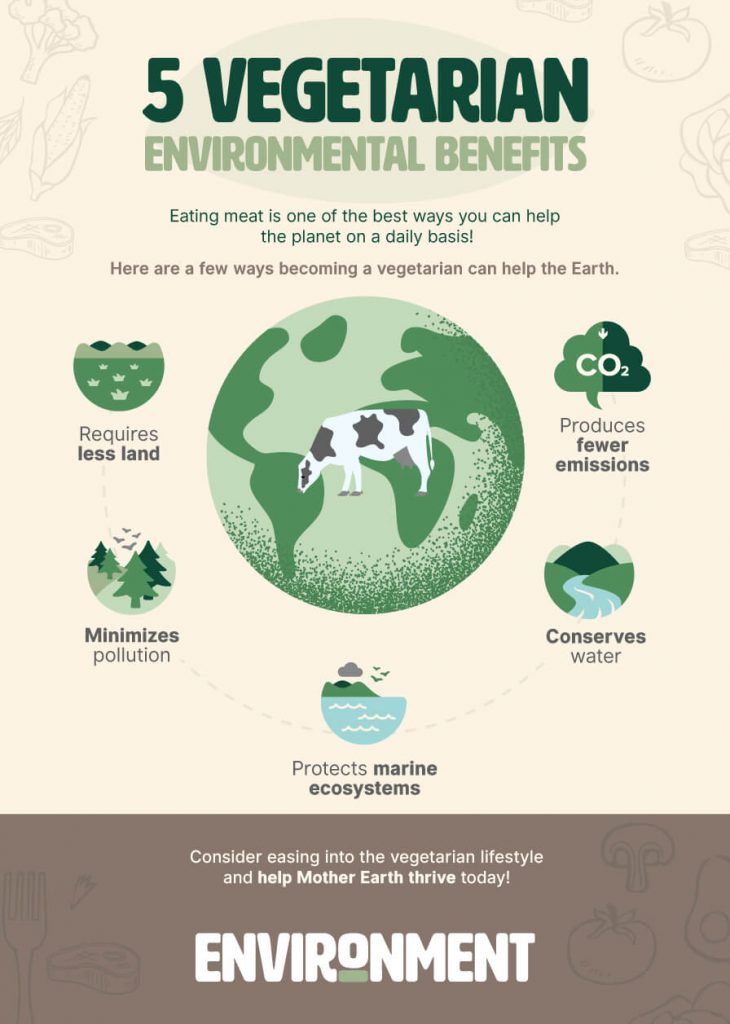Benefits of Going Vegetarian
Embracing a vegetarian lifestyle brings numerous benefits for individuals and the environment. In this article, we will explore the advantages of adopting a vegetarian diet and how it can positively impact your health, the planet, and animal welfare.
Improved Health
Switching to a vegetarian diet can have a profound impact on your overall health. Research has shown that vegetarians tend to have lower risks of developing chronic diseases such as heart disease, high blood pressure, type 2 diabetes, and certain types of cancer. By consuming a variety of plant-based foods, vegetarians often have a higher intake of essential nutrients, vitamins, and minerals.
Weight Management
Vegetarian diets can also aid in weight management. Plant-based foods are generally lower in calories and saturated fats compared to animal products. Additionally, vegetarian diets are typically rich in fiber, which promotes feelings of fullness, reduces cravings, and helps maintain a healthy weight.
Environmental Impact
Choosing a vegetarian lifestyle can significantly reduce your carbon footprint and contribute to a more sustainable planet. Animal agriculture is a leading cause of greenhouse gas emissions, deforestation, and water pollution. By eliminating or reducing animal products from your diet, you can help combat climate change, conserve water resources, and preserve natural habitats.
Animal Welfare
One of the primary reasons people choose to go vegetarian is to promote animal welfare. The meat industry often involves practices that can be harmful and inhumane to animals. By adopting a vegetarian diet, you are actively choosing to avoid supporting these industries and reducing the demand for animal products.
Meeting Nutritional Needs
Contrary to common misconceptions, a well-planned vegetarian diet can provide all the necessary nutrients for a healthy lifestyle. It is essential to ensure an adequate intake of protein, iron, calcium, vitamin B12, and omega-3 fatty acids. These nutrients can be obtained through plant-based sources such as legumes, tofu, leafy greens, fortified cereals, and nuts.
Supporting Global Food Security
As the global population continues to grow, ensuring food security becomes increasingly important. A vegetarian diet requires fewer resources and less land compared to animal agriculture. By shifting towards plant-based diets, we can help address food scarcity, reduce reliance on intensive farming practices, and promote a more equitable distribution of food worldwide.

In conclusion, embracing a vegetarian lifestyle offers a multitude of benefits for both individuals and the planet. From improved health and weight management to environmental sustainability and animal welfare, the advantages are substantial. By making conscious choices about our diet, we can contribute to a healthier, more compassionate, and sustainable world.
Frequently Asked Questions about the Benefits of Going Vegetarian
1. Why should I consider going vegetarian?
Going vegetarian has numerous benefits such as reducing the risk of chronic diseases, promoting weight loss, and helping to protect the environment.
2. Will I get enough protein on a vegetarian diet?
Yes, you can still get enough protein on a vegetarian diet by consuming plant-based protein sources such as legumes, tofu, tempeh, seitan, and quinoa.
3. Can a vegetarian diet provide all the necessary nutrients?
A well-planned vegetarian diet can provide all the necessary nutrients including vitamins, minerals, and essential fatty acids. It is important to include a variety of plant-based foods to ensure a balanced intake.
4. Does going vegetarian help with weight loss?
Yes, going vegetarian can aid in weight loss as plant-based diets tend to be lower in calories and saturated fats while being higher in fiber and nutrients.
5. How does a vegetarian diet benefit the environment?
A vegetarian diet requires fewer resources, such as land and water, compared to a meat-based diet. It also reduces greenhouse gas emissions and helps conserve biodiversity.
6. Can a vegetarian diet lower the risk of heart disease?
Yes, a vegetarian diet has been linked to a lower risk of heart disease due to its lower intake of saturated fats and cholesterol, and higher intake of heart-healthy nutrients like fiber and antioxidants.
7. Will I feel less energetic on a vegetarian diet?
No, a well-balanced vegetarian diet can provide all the necessary energy for an active lifestyle. It is important to consume a variety of plant-based foods to meet your energy needs.
8. Can a vegetarian diet help prevent certain types of cancer?
Research suggests that a vegetarian diet may lower the risk of certain types of cancer, particularly colon, breast, and prostate cancer. The high intake of fruits, vegetables, and fiber may play a protective role.
9. Is it safe to raise children on a vegetarian diet?
Yes, a well-planned vegetarian diet can be safe and healthy for children of all ages. It is important to ensure they receive adequate nutrients such as iron, calcium, and vitamin B12 through plant-based sources or supplements.
10. Can a vegetarian diet help reduce the risk of diabetes?
Yes, studies have shown that a vegetarian diet can help reduce the risk of type 2 diabetes. The high fiber and low saturated fat content of plant-based diets may contribute to better blood sugar control.




